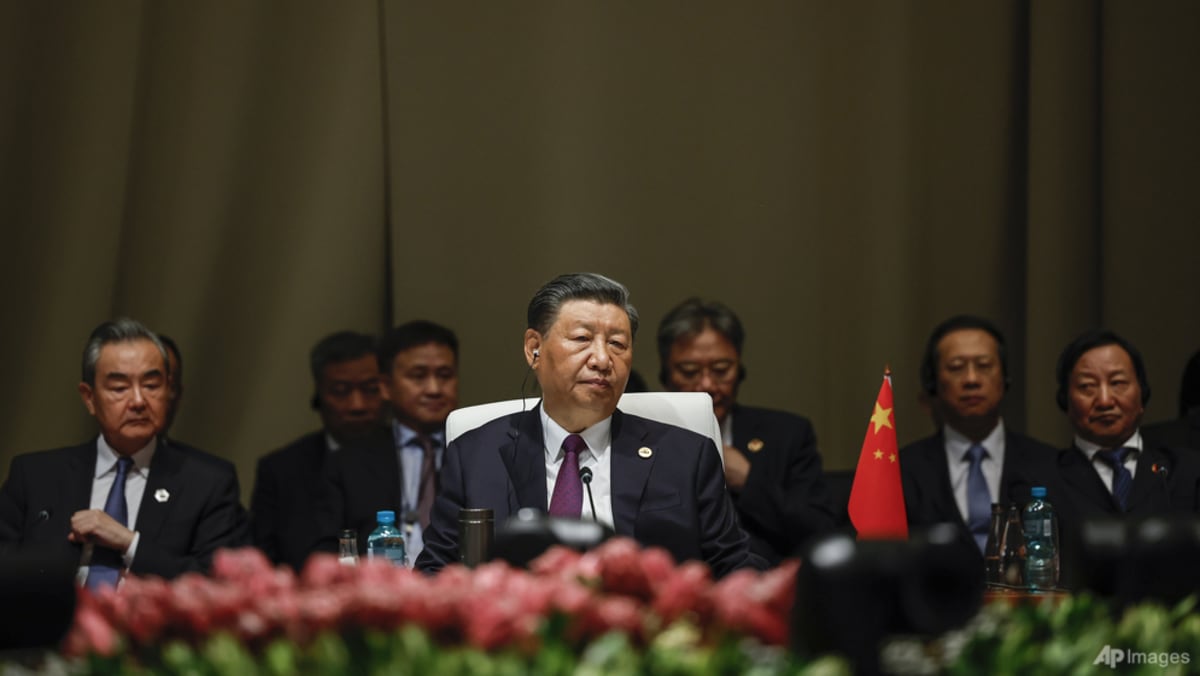
He has only left China twice - to visit Russian President Vladimir Putin in Moscow and to attend a meeting of major BRICS emerging economies in South Africa last month, where he also missed a keynote address without explanation.
SCRIPTED COMMENTS
By comparison, Xi managed five overseas visits in 2022 - when the country's borders were effectively shut due to rigid pandemic controls - and a dozen in 2019 before COVID-19 struck.
Some Western leaders like French President Emmanuel Macron and US Secretary of State Antony Blinken have travelled to China to hold talks with Xi this year.
But for several Western envoys in Beijing, regular access to Chinese officials or even scholars from state-linked think tanks - which play a key role in explaining China's policies to the world - has dropped off compared to before the pandemic, they said.
Scheduling visits for travelling dignitaries, as well as establishing protocols and ensuring media access, is also getting harder, several diplomats said.
When meetings are arranged, Chinese officials stick rigidly to scripted comments, the diplomats said, while some added they experienced hostile behaviour from nationalistic academics. This has curtailed the quality of information envoys can feed back to their capitals, they said.
Reuters reported in July on how some diplomats say they are also facing heightened scrutiny and interference from Chinese authorities.
However, envoys from two countries which enjoy close relations with China said they had experienced no such problems.
Yun Sun, director of the China Program at the Stimson Center, a Washington DC-based think tank, said curtailing access or not attending events is increasingly used by China as "leverage" against countries with whom it has disagreements.
"Engagement is seen and used by China as a leverage to shape other countries' behaviours," Sun said, adding that she had also heard that the lack of access and security restrictions for Western diplomats in China had "intensified".
And with China ramping up a sweeping national security drive, aimed in part at rooting out foreign spies, there is little sign of this trend letting up any time soon, analysts say.
"When the anti-West sentiment is on the rise within the Chinese bureaucracy, frequent contact or close working relationships with Western officials may raise questions about one's political trustworthiness," said Tong Zhao, senior fellow at the US-based Carnegie Endowment for International Peace.
"To Chinese officials, the benefits of such engagements have become less evident, while the political and security risks are growing."
https://news.google.com/rss/articles/CBMiaWh0dHBzOi8vd3d3LmNoYW5uZWxuZXdzYXNpYS5jb20vYXNpYS9mb3JlaWduLWVudm95cy1jaGluYS14aXMtZzIwLWFic2VuY2UtY29uZmlybXMtd29ycnlpbmctdHJlbmQtMzc1MDE5MdIBAA?oc=5
2023-09-06 12:19:21Z
2375696082
Tidak ada komentar:
Posting Komentar